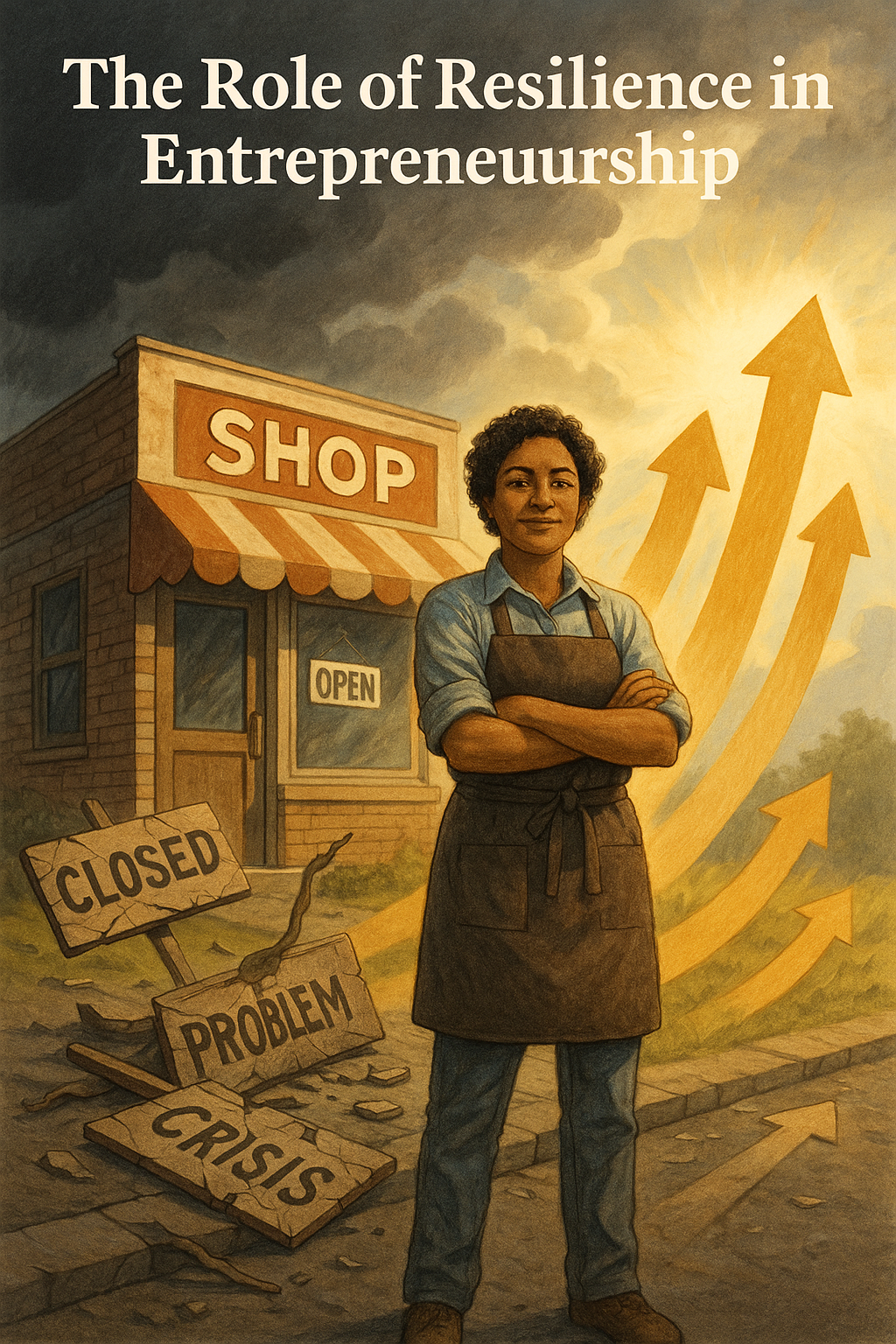Entrepreneurship is often portrayed as exciting and glamorous, but in reality, it’s a journey filled with challenges, uncertainty, and setbacks. What separates successful entrepreneurs from those who give up is not just talent or resources—it’s resilience.
Resilience is the ability to recover quickly from difficulties, adapt to change, and keep moving forward despite obstacles. For small entrepreneurs, resilience is not just an advantage—it’s a survival skill.
Why Resilience Matters in Business
Every entrepreneur will face challenges such as:
- Financial difficulties.
- Slow sales periods.
- Negative customer feedback.
- Market changes or new competitors.
Resilient entrepreneurs don’t avoid challenges—they navigate them with determination. This ability to bounce back keeps the business alive and growing when others might quit.
Lesson 1: Failure Is Part of the Process
Failure doesn’t mean the end. Many successful businesses today were born out of failed attempts.
Resilient entrepreneurs:
- Treat failure as feedback, not defeat.
- Analyze what went wrong and adjust.
- Use lessons learned to improve future strategies.
Instead of fearing failure, embrace it as a learning opportunity.
Lesson 2: Stay Focused on Long-Term Vision
Setbacks can make you doubt your path. Resilience means keeping your eyes on the bigger picture.
Tips:
- Write down your long-term goals and revisit them when things get tough.
- Break big goals into smaller milestones.
- Celebrate small wins to stay motivated.
Vision provides direction even when daily challenges seem overwhelming.
Lesson 3: Adaptability Is Strength
Markets change, customer needs evolve, and unexpected crises arise. Resilient entrepreneurs adapt instead of resisting change.
How to build adaptability:
- Stay informed about industry trends.
- Listen to customer feedback and pivot when needed.
- Be open to trying new tools, strategies, or business models.
Flexibility ensures survival in a fast-changing world.
Lesson 4: Build a Support System
Resilience is not built alone. Having people around you provides strength when things get tough.
Ways to build support:
- Connect with other entrepreneurs who understand your struggles.
- Seek mentors for guidance and encouragement.
- Surround yourself with family and friends who support your journey.
A strong support system helps you keep going when motivation runs low.
Lesson 5: Manage Stress and Energy
Resilience is not just mental—it’s physical too. Entrepreneurs who neglect their health struggle to handle stress.
Tips:
- Maintain healthy routines: exercise, sleep, and balanced diet.
- Practice mindfulness or meditation.
- Take breaks to recharge, instead of working nonstop.
Taking care of yourself gives you the strength to take care of your business.
Lesson 6: Practice Positive Mindset
A resilient mindset focuses on opportunities instead of obstacles.
Ways to build positivity:
- Reframe problems as challenges to solve.
- Focus on progress, not perfection.
- Use affirmations or journaling to strengthen optimism.
A positive outlook fuels creativity and persistence.
Lesson 7: Financial Preparedness Builds Resilience
Financial struggles are a major cause of business stress. Preparing in advance increases resilience.
What to do:
- Keep an emergency fund for slow months.
- Avoid unnecessary debt.
- Track expenses and revenue carefully.
Financial discipline gives you more flexibility to weather hard times.
Final Thoughts: Resilience as the Entrepreneur’s Superpower
Entrepreneurship is not about avoiding problems—it’s about learning how to face them with courage and adaptability. Resilience helps you recover from setbacks, stay focused on your vision, and continue moving forward even when the road is difficult.
For small entrepreneurs, resilience is the bridge between failure and success. Develop it, nurture it, and let it guide you through the ups and downs of business life.
Remember: the most successful entrepreneurs are not the ones who never fall, but the ones who always rise again.
